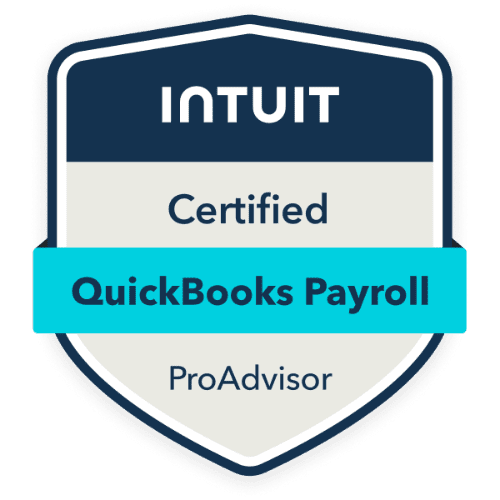Leading a nonprofit organization or house of worship means managing mission-critical programs while navigating unpredictable funding streams. One quarter you’re celebrating a successful fundraising campaign, the next you’re wondering how to maintain services when a major donor unexpectedly reduces their commitment.
Nonprofit emergency reserves (also called operating reserves) are restricted funds set aside specifically for unexpected expenses, funding shortfalls, or urgent ministry opportunities. These reserves ensure your organization can continue serving your community when unforeseen circumstances threaten operations.
If your organization operates without adequate reserves (and 40% of nonprofits do), here are seven compelling reasons why building emergency reserves should be your board’s top fiduciary priority.
1. You’ll Maintain Mission-Critical Services During Funding Gaps
Nonprofit organizations face unique funding challenges that can disrupt vital community services. A major foundation might delay grant disbursements. Annual giving campaigns could fall short of projections. Government contracts might face unexpected cuts or delays.
Without adequate reserves, these funding gaps force impossible choices: suspending programs, laying off staff, or compromising service quality. Emergency reserves allow you to maintain consistent programming while working to restore normal funding levels.
2. You Won’t Compromise Staff Retention During Financial Stress
Your ministry team and program staff are the heart of your mission. Losing experienced employees during temporary funding challenges can devastate program continuity and community relationships.
When you have emergency reserves, you can maintain competitive compensation and benefits during revenue shortfalls, preserving institutional knowledge and program effectiveness. The cost of recruiting and training replacement staff far exceeds the investment in maintaining your existing team.
3. You Can Address Facility Emergencies and Capital Needs
Churches and nonprofit facilities require ongoing maintenance and unexpected repairs. Your sanctuary’s roof develops leaks before Easter services. The food pantry’s refrigeration system fails during the summer months. Your community center’s HVAC system breaks down before a major event.
These facility emergencies can halt programming and damage community trust. Emergency reserves allow immediate response to facility issues, ensuring continued operations and stewardship of donated resources.
4. You’ll Demonstrate Financial Stewardship to Donors and Grantmakers
Donors, board members, and grantmakers expect responsible financial management. Having adequate reserves demonstrates good stewardship and long-term sustainability planning, increasing confidence in your organization’s leadership.
Many foundations and major donors specifically evaluate an organization’s financial health before making grants. Adequate reserves can be the deciding factor in funding decisions.
5. You Can Respond Quickly to Community Crises and Ministry Opportunities
Emergency situations often create urgent ministry opportunities. Natural disasters require immediate response. Community crises demand rapid resource deployment. Special ministry opportunities may arise with limited windows for action.
Organizations with adequate reserves can respond immediately to these situations, fulfilling their mission when communities need them most. Those without reserves must wait for funding approval, often missing critical ministry moments.
6. You’ll Avoid Expensive Emergency Financing and Debt
When nonprofits face unexpected expenses without reserves, they often resort to costly solutions: high-interest credit lines, emergency loans, or depleting restricted funds (which can create compliance issues).
These expensive alternatives often create long-term financial problems that compound the original emergency. Adequate reserves eliminate the need for these costly measures.
7. You’ll Sleep Better Knowing Your Mission is Protected
Nonprofit leadership carries enormous responsibility for community welfare and donor stewardship. Financial stress about “what if” scenarios can consume mental energy better spent on mission advancement.
Emergency reserves provide peace of mind that allows leaders to focus on vision, strategy, and community impact rather than financial survival.

How Much Should Your Nonprofit Save?
Financial experts recommend nonprofits maintain six to twelve months of operating expenses in emergency reserves. Churches and faith-based organizations should consider the higher end due to typically variable giving patterns.
Calculate monthly essential expenses: payroll, utilities, insurance, facility costs, and minimum program expenses. Many boards target 25-50% of annual operating budget as their reserve goal.
Consider your funding stability: Organizations with diverse funding sources might maintain six months of expenses, while those dependent on few donors should target twelve months.
Building Your Nonprofit Emergency Reserves
1. Start with a separate savings account.
Establish a board-designated reserve fund in a separate high-yield account. Board resolutions should clearly define reserve purposes and access procedures.
2. Implement systematic reserve funding.
Allocate a percentage of each donation or grant to reserves until reaching your target. Many organizations designate 5-10% of unrestricted gifts to reserves.
3. Pursue reserve-building grants.
Some foundations specifically fund capacity building and financial sustainability initiatives.
4. Make it a line item in your budget.
Treat emergency fund contributions like any other monthly expense.
When to Use Emergency Reserves
Use reserves only for genuine emergencies: sudden funding shortfalls affecting core operations, critical facility repairs, unexpected compliance requirements, or urgent community response needs.
The Bottom Line
Faithful stewardship includes planning for uncertainty. Emergency reserves ensure your organization can continue serving your community regardless of funding fluctuations. Start building reserves today—your mission’s continuity depends on it.
Need Help Getting Your Finances Organized?

Building emergency reserves is just one piece of solid financial stewardship for your organization. If you’re struggling to track donations, manage grants, or simply don’t have time to maintain proper financial records, that’s where I come in. My bookkeeping services help nonprofits and houses of worship maintain clear and accurate financial records, enabling you to make informed decisions about everything from reserve contributions to program investments.
When your books are organized and up to date, building those crucial reserves becomes much more manageable. Ready to get your finances on track? Let’s discuss how I can help your organization establish stronger financial stewardship.
This blog post is intended for informational and educational purposes only and should not be construed as financial, tax, or legal advice. Every business situation is unique, and tax laws and regulations are subject to frequent changes. Please consult with a qualified accountant, tax professional, or attorney before making decisions about your business structure or bookkeeping practices. The information provided here is based on current understanding at the time of publication and may not reflect the most recent changes in tax law or regulations.












